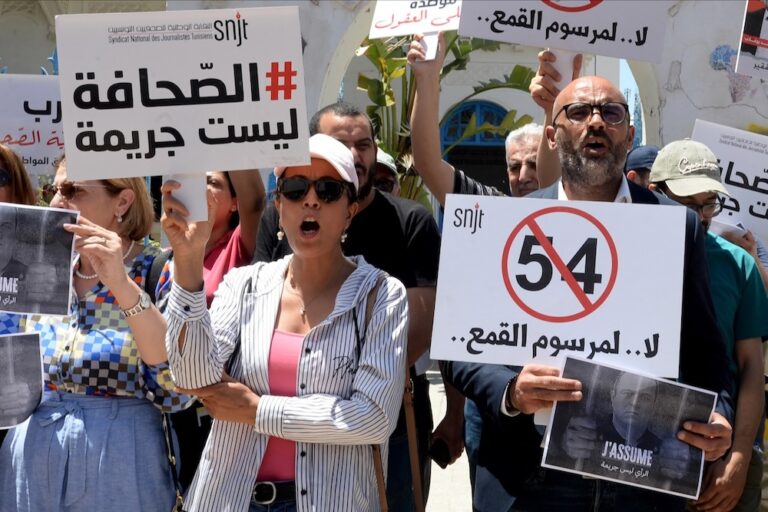Seminar participants heard testimony from journalists and activists about the state of the media under former president Ben Ali and their recommendations for media reform.
(ANHRI/IFEX) – Cairo, 25 September 2011 – In a seminar organized by the Arab Institute for Human Rights and the National Authority to Reform Information and Communication that took place in Tunis on 23 and 24 September 2011, ANHRI’s executive director, Gamal Eid, demonstrated “mechanisms of containment and utilization of foreign media.” His participation included a presentation on the attempts of several Egyptian, Lebanese and Jordanian newspapers to improve the image of the former regime of Zine El-Abidine Ben Ali by publishing misleading advertisements made to appear like press articles that lauded imaginary achievements in the fields of freedoms and human rights prior to the ousting of the Tunisian dictator.
The National Authority to Reform Information and Communication, tasked by the Tunisian government with developing plans and proposals to reform the Tunisian media after Ben Ali’s escape, held the seminar in association with the Arab Institute for Human Rights in order to hear testimonies from Tunisian journalists and civil society activists who support freedom of the press and freedom of expression. The testimonies centered on the status of the press and the media during the time of Ben Ali, as well as focusing on suggestions and recommendations to reform the media. The journalists and media practitioners listened to the presentation by Eid regarding the newspapers that had published misleading advertisements, both in the form of documentary reports or as special reports, and the content that suggested that the former Tunisian president was a patron of freedom and a supporter of human rights. ANHRI’s director pointed out that Egyptian, Lebanese and Jordanian newspapers have contributed to misguiding and deceiving Arab public opinion, and that the newspapers and journalists who participated in these actions are also those that supported Saddam Hussein and Muammar Gaddafi. As such, it was not surprising that they also supported the Tunisian dictator, said Eid.
The National Authority to Reform Information and Communication in Tunisia, which is headed by journalist and freedom of expression defender Kamel Labidi, has noted the importance of the political will required to reform the status of the media, as well as the importance of cooperation and the dependence on civil society, especially with respect to organizations that support freedom of expression. These two factors are absent in Egypt since the practices of the Military Council and the interim government suggest a lack of genuine political will to improve on the poor condition of the media, which has carried over from the time of deposed president Hosni Mubarak. These practices were made evident by the restoration of the Ministry of Information, restraints on mass media and newspapers and an unjust campaign against civil society organizations.
“The time difference between the Tunisian and Egyptian revolutions was less than a month, but the difference in practice is much bigger. The confusion and arbitrary measures of Egypt’s Military Council and the transitional government hamper any progress in the civil and political situation, especially the media scene, and minimize civil society contributions in this regard,” said Eid.


